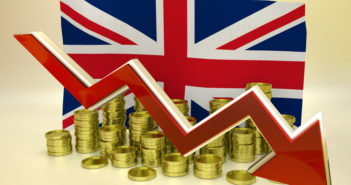The UK trade deficit came out at 11.8 billion, worse than 10.8 billion expected. In addition, the previous figure was revised to the downside.
Industrial output dropped by 0.1% m/m, worse than 0.4% expected. Year over year, production is down 0.2% against 0.2% expected. Manufacturing is down 0.2% instead of 0.5% predicted. Year over year, the rise is only 0.4% instead of 1% that was on the cards.
GBP/USD is falling from 1.2950 to 1.2915. Earlier, cable traded in a narrow range, in anticipation of the US Non-Farm Payrolls.
NFP Preview: jobs distraction could be an opportunity to trade the wage data
These are not top-tier figures, but when all of them go in one direction, it has an impact. Earlier, the Halifax HPI showed a big fall of 1% in house prices instead of a rise of 0.2% that was expected.
The UK economy continues struggling in 2017. The first 6 months after the Brexit vote saw an ongoing expansion, but reality began biting in 2017. Growth has been only 0.2% in Q1 and given these figures and other ones, things have not improved in the second quarter.
Will BOE Governor Mark Carney switch to the dovish side once again.
Here is how the move looks on the chart. Support awaits at 1.29, followed by 1.2840. Resistance is at 1.30.
More: GBP: Bringing Forward Our BoE Rate Hike Call To Nov 17; Implications On GBP – BTMU




